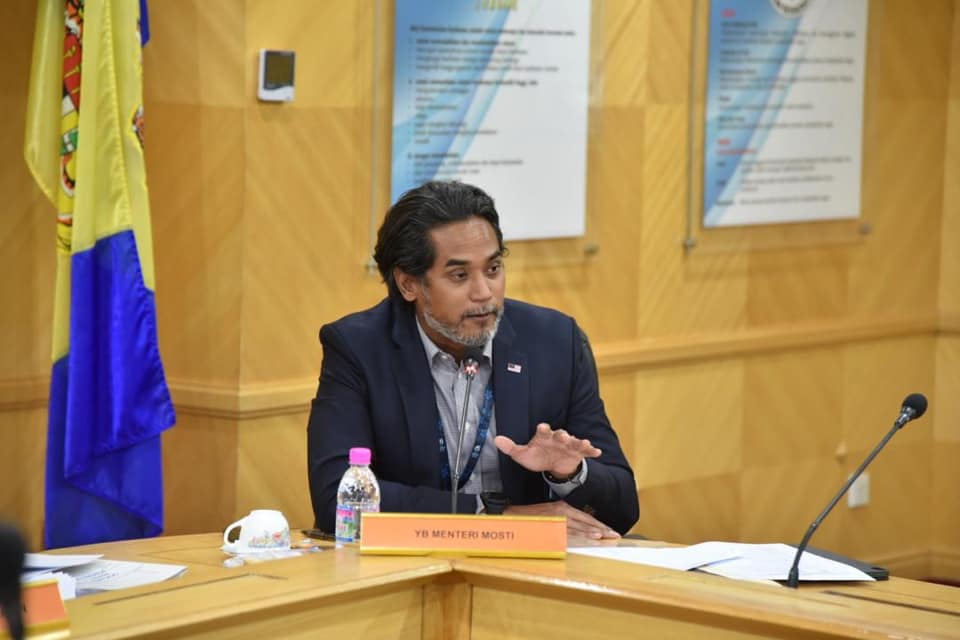KUALA LUMPUR, Jan 6 — After priority groups are vaccinated against Covid-19, the general population can volunteer to register for immunisation with the MySejahtera application, Khairy Jamaluddin said.
The co-chairperson of the Covid-19 Vaccine Supplies Access Guarantee Special Committee (JKJAV) said that the first priority group for the Covid-19 vaccine will be frontliners, followed by people with underlying health conditions, and the elderly.
“We will have a sign-up feature on MySejahtera where you can sign up to say you consent, your register to have the vaccine,” Khairy said at a press conference in Parliament yesterday.
The MySejahtera application is a government contact tracing application that is used by the Ministry of Health (MOH) to identify close contacts to positive Covid-19 cases. It is also equipped with features that tell users if there are positive cases within their vicinity, as well as a coronavirus symptom checker.
Khairy said that the MySejahtera application will also be used for vaccine surveillance purposes post-immunisation, where vaccinated individuals can use the app to report any side effects from the Covid-19 jab.
“We will continue to monitor for adverse effects and surveillance will be done by MOH,” the minister of science, technology, and innovation said.
“We will also encourage self-reporting surveillance through MySejahtera.”
Extra Vaccine Shots Will Be Kept For Migrant Workers
The government so far is making deals to procure Covid-19 vaccines for 26.5 million people, which translates to 82.8 per cent of the total Malaysian population. According to Khairy, the Covid-19 vaccine will only be given to those aged 18 and above.
“We have made a decision under JKJAV that we will only vaccinate 18 and above in Malaysia.
“That means that we do have slight extra in our stockpiles, which we will keep for foreign workers, for also expatriates, residents who are non-Malaysians, and we might increase the order in future because we don’t know at the moment, how long the immune response is for the vaccination,” Khairy added.
“Why do we aim to go above is — one, we want to cater for foreigners, and the other thing is I want to mitigate against any risk. Let’s say the vaccine we have purchased and it’s not registered by the National Pharmaceutical Regulatory Agency (NPRA). So, I need to buy more than 70 per cent.”
Khairy also pointed out that there could be a manufacturing risk, whereby the vaccines procured are not produced in time, hence it is essential for the government to increase their vaccine stockpile as long as it is within the budget.
Currently, the government is spending RM 2.05 billion to purchase Pfizer, AstraZeneca, COVAX, Sinovac, CanSino, and Sputnik V vaccines. The purchasing agreements with Chinese companies Sinovac and CanSino Biologics, as well as with Russia state-owned Gamaleya National Center of Epidemiology and Microbiology are still pending final negotiations.
Khairy also pointed out that the Minister of Home Affairs, Minister of Foreign Affairs, and the Minister of Human Resources will be invited for JKJAV meetings to discuss if the Covid-19 vaccine should be given free to foreign workers.
“The principle is we need to vaccinate the foreign workers, to make sure they are safe and to make sure we are also safe.” Khairy said.
“The more people you vaccinate, the safer you are. Let’s say we vaccinate only our citizens but we don’t vaccinate three million foreign workers. We are still at risk because we may not still reach the threshold for herd immunity. That’s why we are considering this question very carefully,”
The minister said that the foreign workers may not consider getting themselves vaccinated if it’s not free as cost may be an obstacle.
Over the last two months, there has been a large number of Covid-19 cases among migrant workers, including the largest cluster seen, the Teratai cluster, which had infected 6,253 individuals as of January 2, mostly among migrant workers.








